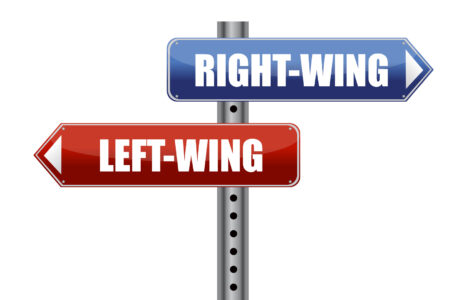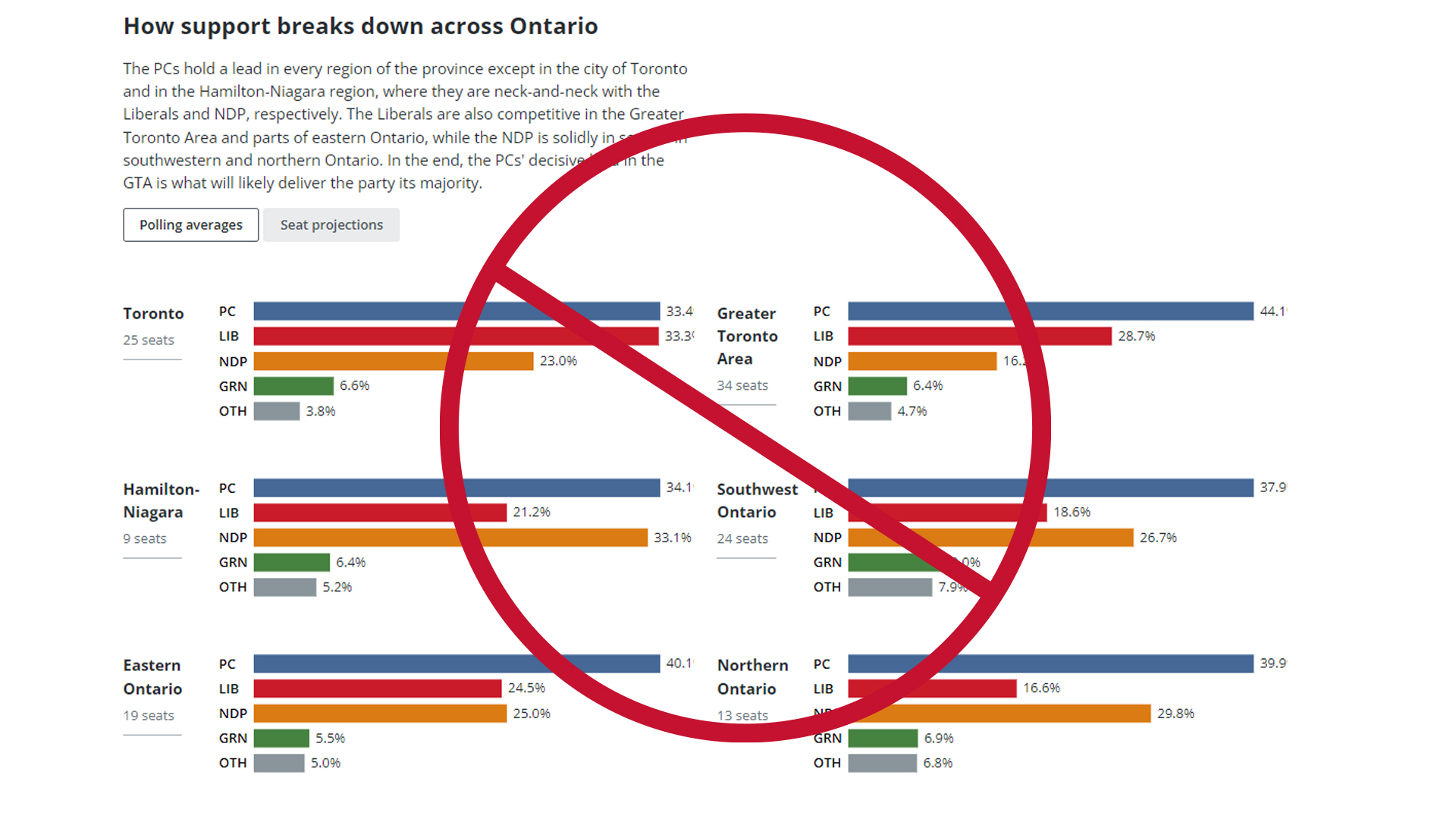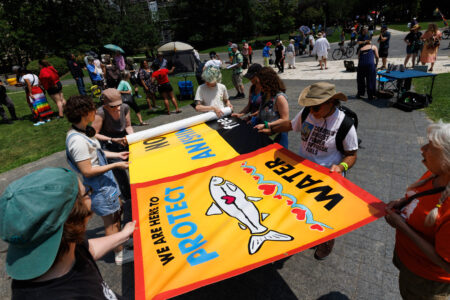
(Version française disponible ici)
Ontario’s chief electoral officer recently published a report on the 2022 provincial election in which he raised questions regarding the state of democracy in Canada. Surprisingly, there was a call for legislative changes banning the publication of public opinion polls two weeks before election day. The rationale is that “political polls have the potential to influence election results by either motivating or demotivating electors.”
The recommendation to ban pre-election polls was covered by several media outlets and sparked debates among pollsters, scholars and others interested in elections, public policy and public opinion.
Several bad reasons for banning polls
We believe that banning pre-election polls is a bad idea for several reasons. It won’t actually stop polls from happening and, given social media, it would be impossible to enforce. Moreover, a ban is unlikely to survive a challenge under the Canadian Charter of Rights and Freedoms. Additionally, conducting polls provides important methodological information back to polling companies. Perhaps most importantly, research indicates that polling does not have a direct effect on voting behaviour.
The first problem with the recommendation of Elections Ontario is that a ban on polls would not stop pollsters from conducting polls. It would reserve the information only for people or organizations who can pay for it – in other words, political parties, major public or private organizations. Ordinary citizens would be left with potentially misleading information because they would not have access to data on recent movements in the electorate’s intentions. Rumors would replace survey results that can be verified and scrutinized.
As well, as can be seen in other elections, it is not feasible to implement a ban on polls today. In the French 2017 presidential election, polls were published in Belgium and in Switzerland in mainstream media on the last day before the election, when the polls were banned in France. In the present case, the law would apply only to Ontario, meaning that any pollster could publish its estimates on its own website and that polls could be published elsewhere without any consequences.
Additionally, the legislative changes recommended would go against the Charter as already indicated by the Supreme Court of Canada, which ruled against a poll ban three days before the federal election in 1998, which was then in force. Freedom of expression, freedom of the press and the ideals of democracy also mean that this information can (and, we believe, should) be made publicly available.
Consider this as well: Pre-election polls play a major role in the improvement of survey methods, because this is one of the rare occasions where pollsters have a benchmark to validate their methods – the actual vote – and, when necessary, improve them. Because voting intentions tend to change during electoral campaigns, pollsters and researchers need to be able to compare the vote with estimates taken as close as possible to the election day. Thus, pre-election polling plays an essential methodological role.
The myth of poll influence
Perhaps most importantly, the assumptions in Elections Ontario’s proposal regarding the impact of pre-election polls are not supported by research. What we know about the consequences of pre-election polls on voter behaviour does not suggest that it is substantially affected. Recently, a U.K. analysis titled The Power of Polls? determined that the effects of pre-election polling on voters’ behaviour are negligible or nonexistent.
Studies focusing on Canada have reached the same conclusion. For example, a survey experiment randomly showing (or not) the state of the race during the 2015 Canadian election did not have any impact on voters’ decision to vote or abstain, or on their proclivity to support a given party versus another. This held regardless of whether the state of the race focused on the district level or the nationwide race.
Another study, published in Canadian Public Policy, concluded that “banning polls is not a needed or an appropriate answer to the presence of polls in electoral campaigns. Polls are among the most reliable and independent information that citizens get (…) and they do not lead people to stay home or change their vote choice on election day.”
Additionally, some of the authors of this article showed in an article published in Policy Options that citizens who follow pre-election polls are more likely to vote. This finding contradicts the idea that citizens exposed to public opinion polls are more likely to abstain. These results, based on data covering both provincial (Quebec, 2007 and 2012) and federal elections (2008, 2011 and 2015), suggest that the impact of electoral polls is overestimated.
Finally, compared to what is done in other countries, the recommendation by Elections Ontario to ban polls two weeks before voting is even more puzzling. Indeed, a report from the World Association for Public Opinion Research examined how pre-election polls are regulated in 133 countries, and found that there was no blackout period in 32 per cent of those that responded to their survey. One-third reported blackout periods of one to six days while another 23 per cent reported periods of seven days or more.
The Ontario chief electoral officer’s recommendation to ban pre-election polls is hard to explain, given that there is no evidence that it would contribute to more enlightened votes. While the recommendation is currently under review, the provincial government should thoroughly examine other available research.
Low turnout rates are worrisome. Examining which policies could be useful in tackling the downward trend that Canadian democracy is facing is of utmost importance. However, Elections Ontario’s recommendation is not the way to go.














